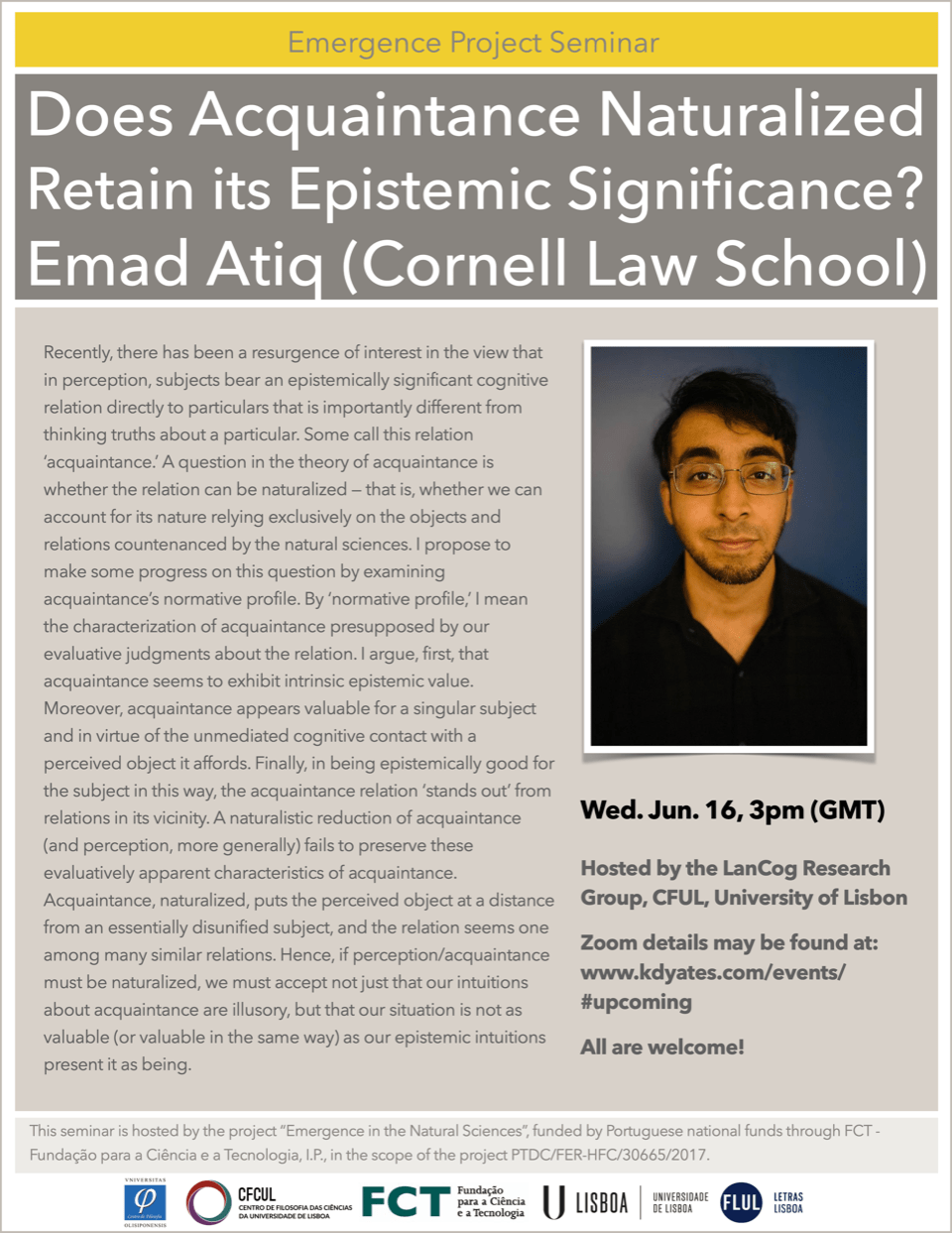
Recently, there has been a resurgence of interest in the view that in perception, subjects bear an epistemically significant cognitive relation directly to particulars that is importantly different from thinking truths about a particular. Some call this relation ‘acquaintance.’ A question in the theory of acquaintance is whether the relation can be naturalized—that is, whether we can account for its nature relying exclusively on the objects and relations countenanced by the natural sciences. I propose to make some progress on this question by examining acquaintance’s normative profile. By ‘normative profile,’ I mean the characterization of acquaintance presupposed by our evaluative judgments about the relation. I argue, first, that acquaintance seems to exhibit intrinsic epistemic value. Moreover, acquaintance appears valuable for a singular subject and in virtue of the unmediated cognitive contact with a perceived object it affords. Finally, in being epistemically good for the subject in this way, the acquaintance relation ‘stands out’ from relations in its vicinity. A naturalistic reduction of acquaintance (and perception, more generally) fails to preserve these evaluatively apparent characteristics of acquaintance. Acquaintance, naturalized, puts the perceived object at a distance from an essentially disunified subject, and the relation seems one among many similar relations. Hence, if perception/acquaintance must be naturalized, we must accept not just that our intuitions about acquaintance are illusory, but that our situation is not as valuable (or valuable in the same way) as our epistemic intuitions present it as being.
Informações
O seminário será realizado em videoconferência, via Zoom.
https://videoconf-colibri.zoom.us/j/84705629515?pwd=bWVITk5iTzZUZWVRMmYzSEJOSDlKdz09
Password: 817996
Seminário organizado no âmbito do projecto EITNS, em parceria com o LangCog Research Group (CFUL)